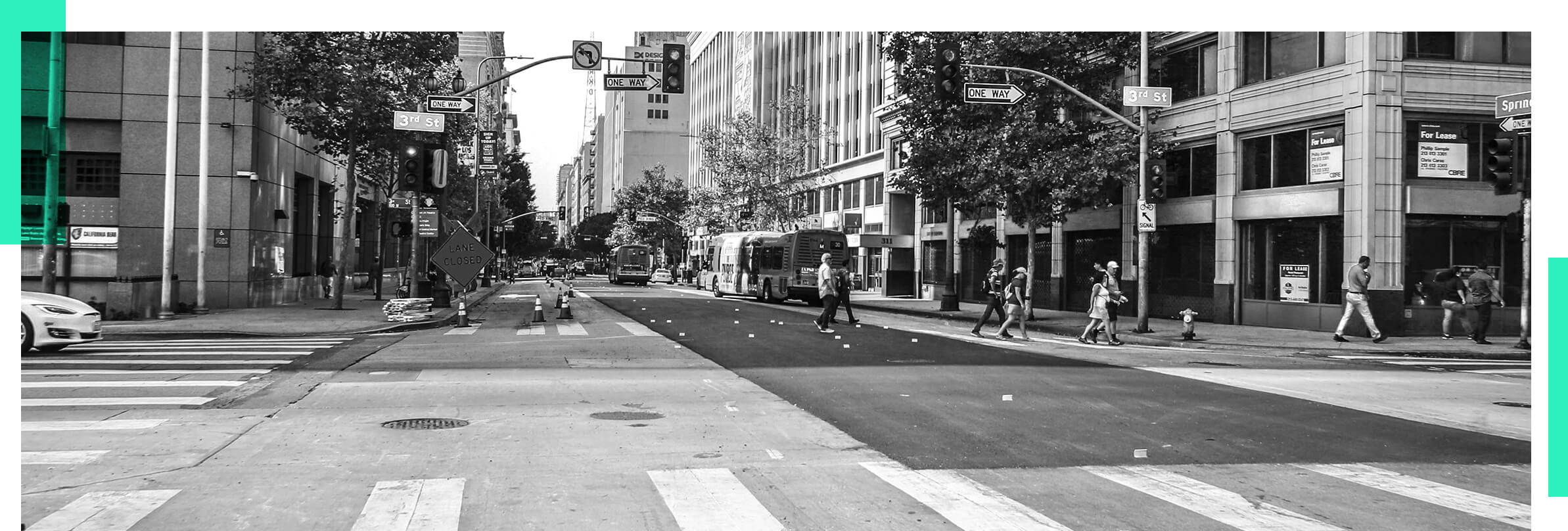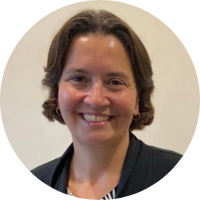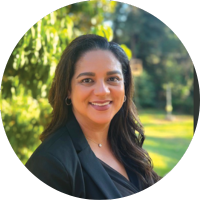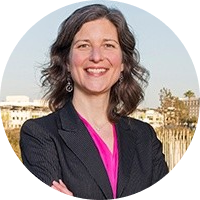About The Open Mobility Foundation


A Pioneering Partnership
The Open Mobility Foundation (OMF) is an open-source foundation that creates a governance structure around open-source mobility tools, beginning with a focus on the Mobility Data Specification (MDS). By creating an open source foundation, OMF is able to offer a safe, efficient environment for stakeholders including municipalities, companies, technical, privacy, and policy experts, and the public to shape urban mobility management tools that help public agencies accomplish their mobility policy goals.
Our Leadership
The Open Mobility Foundation is hosted by OASIS-Open, an established leader in open-source and software standards industry. OASIS is a nonprofit consortium that drives the development, convergence, and adoption of open standards for the global information society.
A global 5,000+ member-driven standards body that represents the marketplace of public and private sector technology leaders, users and influencers, OASIS promotes industry consensus and produces worldwide standards for security, Internet of Things, cloud computing, energy, content technologies, emergency management, mobility, and other areas.
Board of Directors
Michael Lawrence Evans
City of Boston
Michael Lawrence Evans is the Director of the Office of Emerging Technology at the City of Boston. He leads the City’s exploration and adoption of new technology to support more responsive and equitable services. Previously, he directed Boston’s Mayor’s Office of New Urban Mechanics and led their civic technology portfolio. Michael cut his teeth as a design technologist at Stamen Design and Code for America, where he was a member of their inaugural class of fellows in 2011 and served as a Google Summer of Code mentor.
MICHAEL KING
City of Louisville
Michael is the Director of Louisville Metro Government’s Office of Advanced Planning and Sustainability which carries out strategic, long- and short-term planning initiatives focused on neighborhoods, multi-modal corridors, brownfields, sustainability and public art. The department specializes in collaborating closely with the community as well as cross-departmentally in planning for future growth and development of Louisville. Since receiving his Master of Urban Planning Degree from the University of Louisville, Michael has worked for over 16 years in various capacities in Louisville Metro Government. His multi-faceted skillset has allowed him to integrate a holistic planning approach into numerous projects throughout the city.
NICK LUCIUS
City of Chicago
Nick is both a data scientist and an attorney, with a decade of experience as a lawyer and senior official in both state and local government. Nick has spent considerable time working on litigation related to the foreclosure crisis and advising cabinet officials on policy and legal issues. Nick also served as a chief administrative law judge, overseeing a legal appeals system for millions of people enrolled in public healthcare and many other federal human service programs. As Chief Data Officer at the City of Chicago, Nick leverages his technical and legal knowledge to bring data to the forefront of policy-making and operational decision-making. Throughout his time in government, Nick has used data analytics to bring about quick and significant impact, streamlining processes and improving services. A current member of the Open Mobility Foundation Technology Council, Nick has led the implementation of the Mobility Data Specification (MDS) into Chicago mobility management. Nick has a law degree and a master’s degree in computer science from DePaul University, and a bachelor’s degree from Ohio State University.
RAMSES MADOU
Chairperson
City of San Jose
Ramses Madou is the Division Manager of Planning, Policy, and Sustainability for the Department of Transportation in the City of San José. At the City of San José Ramses leads a team of planners, engineers, policy specialists, data and model experts to plan the Citywide transportation system. His team is working to implement the ambitious mode change and VMT reduction goals of the City’s general plan all while proactively dealing with the fundamental disruptions that are currently shaking the transportation world. Before joining the City of San Jose, he worked as the Associate Director of Parking & Transportation Services for Stanford University where he worked for 10 years. At Stanford, Ramses played many roles over his time there including managing program and policy development, planning efforts, retail operations, the University’s Marguerite transit system planning and operations, and regional transportation relationships.
BROOKE MCKENNA
City of Cambridge
Brooke McKenna is the Assistant Director for Street Management with the Department of Traffic, Parking + Transportation in the City of Cambridge, MA. In this role, Brooke is responsible for ensuring the safe, efficient, and sustainable operation of Cambridge’s street network and leading the City’s Vision Zero Initiative. Brooke oversees all aspects of the operations of Cambridge streets, from street design to curb regulation.
During her almost 20 years of experience in Transportation, Brooke worked in a variety of policy and operational roles at the New York City Department of Transportation and the US DOT Volpe Center before joining the City of Cambridge in 2015. Brooke has an MBA and a Master’s in Information Systems from Boston University and a BA from Tufts University.
ART PEARCE
Vice Chairperson
City of Portland
Art Pearce is the Director of Policy, Planning and Projects for the City of Portland Bureau of Transportation. Art is an experienced urban innovator with an extensive background in broad public-private collaborations utilizing transportation investment and mobility innovations to shape the future of cities. He has twenty-five years of experience envisioning and driving change in Portland’s transportation system: establishing policy, planning and delivering transformative investments, and overseeing people-based behavior change and mobility programs. He has a deep understanding of the challenges cities and city governments face in propelling change at an adequate pace, and the new imperatives presented by the crises of climate, and social and racial equity.
SELETA REYNOLDS
Chair Emeritus
Los Angeles County
Seleta Reynolds is Chief Innovation Officer at L.A. Metro. Ms. Reynolds recently joined Metro from the LADOT, where she served as General Manager from 2014-2022 and was responsible for implementing Great Streets for Los Angeles, a plan to reduce traffic fatalities, double the number of people riding bikes, and expand access to integrated transportation choices for Angelinos and the region.
Ms. Reynolds has over 18 years of transportation experience throughout the United States. She has advised transportation technology companies like WalkScore, contributed to the state-of-the-practice as an Association of Pedestrian and Bicycle Professionals Board Member, mentored young professionals through Women’s Transportation Seminar, and nurtured research on Transportation Research Board committees. Ms. Reynolds serves as the President of the National Association of City Transportation Officials.
LAURA RUBIO-CORNEJO
City of Los Angeles
Laura Rubio-Cornejo joined the City of Los Angeles in 2023 as General Manager of the Department of Transportation, bringing with her extensive experience in municipal, regional and state government. As the General Manager, Laura leads a multi-disciplinary department responsible for advancing the safe and efficient multi-modal movement of people and goods within the City. As the agency that leads transportation planning, project delivery, and operations for the City of Los Angeles, LADOT works to ensure that all people in Los Angeles have access to safe and affordable transportation choices that treat everyone with dignity and support vibrant, inclusive communities. Prior to joining the City of Los Angeles, Laura served as the Director of Transportation for the City of Pasadena and as Deputy Executive Officer of Countywide Planning with the Los Angeles County Metropolitan Transportation Authority (Metro).
Laura received a master’s degree in Urban and Regional Planning from the University of
California, Los Angeles, and a bachelor’s degree from Wellesley College. During her downtime, you can find Laura lost in a good book, shuttling her kiddos from one event to another or enjoying a nice dinner with her husband and friends.
GEMMA SCHEPERS
City of Amsterdam
Gemma Schepers works for the Innovation Office (CTO) of the City of Amsterdam. Working in an innovative and vibrant team provides her with the energy to strive for a future-proof, green and resilient Amsterdam. In the CTO, the team works with short-term experiments in living labs cooperatively with citizens and market parties. Currently, Gemma commits herself to the digital transition in the field of Smart Mobility with a strong focus on cyber security and secure data exchange between all stakeholders in the Smart Mobility eco-system. Mobility data is an essential building block to arrive at a livable future city. Mobility generates freedom and does not stop at borders. To create a European, connected, and green mobility network, cities must connect the local networks and move together towards a new way of multi-modal travel. In this process, mobility data is vital. Mobility data, however, also entails risks, especially if organizations start linking datasets on a European scale. That is why Gemma is committed to ensuring privacy and security in this transition so that everyone will soon be able to travel safely, greener, and more comfortably throughout Europe.
FRANCIE STEFAN
City of Seattle
Francie Stefan is the Acting Chief Mobility Officer/Assistant Director of Planning & Community Development for the City of Santa Monica. She leads the City’s transportation policy, strategy and implementation efforts. She has been with the City for 10 years, working on the Expo Light Rail, Colorado Esplanade, Bike and Pedestrian Plans, GoSaMo campaign, COAST open streets, and Breeze Bike Share. Currently, her work is focused on the Shared Mobility Pilot Program, Vision Zero by 2026, and increasing biking, walking, scooting and transit use. Previously, she led Santa Monica’s Land Use & Circulation Element Update and worked at the City of West Hollywood where she initiated their Green Building Program and General Plan update. She has a Master’s degree in Urban Planning from UCLA, and a B.S. in Geography from the University of Minnesota, Twin Cities.
Viktoriya Wise
San Francisco Municipal Transportation Agency
Viktoriya Wise is SFMTA’s Chief of Staff. In this capacity she oversees the Agency’s performance team, internal and strategic communications, special projects and supports the Director of Transportation.
Prior to that, Ms. Wise served for 6 years as the Chief of Staff for the Streets Division. The Streets Division is a 1,000-person, $176M/year operating budget Division that is responsible for: 1)Transportation Engineering; 2) Parking Operations; 3) Parking Enforcement; 4) Field Operations (sign shop, paint shop and meter shop); 5) Livable Streets (bicycle, pedestrian, traffic calming and crossing guard programs); 6) Security and Investigation; and 7) Planning. In 2019, Ms. Wise also served as the Division’s Acting Director for 6 months.
Before joining the SFMTA, Ms. Wise spent 10 years at the San Francisco Planning Department in various roles including as the Deputy Director of Environmental Planning Division and the Senior Planner of the Transportation Team working on a variety of Transportation Studies. Before starting her work in the public sector, Ms. Wise spent several years in the private sector as an Assistant Project Manager for CEQA and NEPA review.
She has also served on the San Rafael Planning Commission starting in 2009 for seven years.
Management
Leo Burnett
SMART Grant Collaborative Program Manager
Andrew Glass Hastings
Executive Director
Having served two Seattle mayors, managed local and regional transportation funding campaigns, led one of the most innovative city DOT teams and advised cities around the country Andrew Glass Hastings has extensive experience working at the intersection of the public and private sectors. A self-proclaimed transportation wonk Andrew continues to work with cities to shape their mobility futures in more equitable and sustainable ways.
Previously as a Senior Advisor to the Mayor of Seattle Andrew led some of the most defining transit and transportation measures in the city and region’s history. He expanded the city’s partnership with King County Metro and grew transit service in the city more than in a generation. Additionally, he was an architect of the largest and most equitable voter-approved transportation investment in Seattle’s history. Andrew stepped away from government to run both local and regional transportation investment campaigns including the $18 billion Sound Transit 2 light rail expansion.
As the Director of Transit & Mobility for the City of Seattle, Andrew and his team – encompassing transit service and capital, parking and curb space management and new mobility – worked to redefine urban mobility by prioritizing transit, equity and innovation in the city’s transportation system. With the goal of increasing access to opportunity his efforts were focused on making it possible to live in Seattle without the high cost of car ownership.
At the Seattle Department of Transportation Andrew founded the New Mobility Program, which included the development of the New Mobility Playbook to clearly articulate the people-first approach the city embraced when partnering with private mobility providers. As the Director Andrew also established the first-of-its kind Transportation Equity Program to reduce the cost of transportation for households most burdened by the increasing cost of living in Seattle.
More recently Andrew worked for the civic tech start-up Remix. He helped cities and transit agencies around the country navigate the quickly evolving new mobility landscape while keeping them at the center of managing mobility with new software tools and data standards. From first-hand experience Andrew knows the importance of data standards like the Mobility Data Specification, and he worked with cities to help them understand the value and incorporate MDS into their policies and practices.
Andrew most recently comes from TransWest, a transportation-as-a-service provider for some of the largest and most recognizable employers in the country. As the Vice President, Strategic Partnerships Andrew led the company’s sustainability efforts, partnered with tech providers, and strengthened relationships in the transportation demand management industry.
Assuming the role of the Open Mobility Foundation’s Executive Director is the culmination of Andrew’s extensive public and private experience working with cities and mobility providers in Seattle and around the country. The unique strength of OMF’s public/private partnership – where cities and companies collaborate in real-time – will continue to produce the open-source data standards and software tools cities need to manage the evolving demands on the public rights of way, leading to more equitable and sustainable urban communities.
MICHAEL SCHNUERLE
Director of Open Source Operations
As the Director of Open Source Operations for the OMF, Michael stewards the OMF’s data specifications, MDS and CDS, by helping public agencies and private companies improve them to meet their real world needs. He helps transportation leaders around the world better manage their public right of way and help residents move safely and efficiently to jobs, schools, work, and play.
Michael is from Louisville, KY and has lived in and worked in San Francisco, Melbourne, Paris, and Edinburgh. As Louisville’s first Chief Data Officer in the Office of Civic Innovation and Technology, he worked for 4 years to use data to improve government performance and transparency, with responsibility for open data, a citywide data strategy, partnerships with other cities and companies, and employee data-driven decision-making and training.
He has spent 18 years volunteering time in civic tech and community advocacy, including open data and building civic services around real-time transit and public safety, leading to the co-founding of Louisville’s first Code for America brigade. His career includes work on internet and technology projects from startups, non-profits, LLCs, and Fortune 500 companies.
How We Work
The Open Mobility Foundation develops open source standards and tools through a governance structure that brings together stakeholders from both the public and private sectors to advance shared goals and work toward the common good. OMF’s governance is designed to emphasize transparency, consensus, and formal approval by our leadership, which is composed of OMF’s members. The OMF is a non-profit membership organization, funded by annual member dues and philanthropic support.
“The Open Mobility Foundation is a great example of how governments can leverage the power of data to transform and modernize the use of city infrastructure to ensure a more equitable future for all.”
Dr. Rajiv J. Shah, President of The Rockefeller Foundation

















